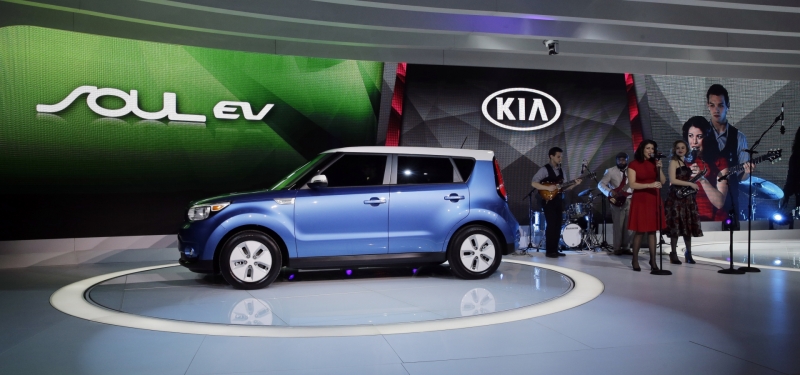John D Kelly Speech on Hybrid Vehicles
 Next time you shop for a new vehicle, look around at the hybrids and electric models. Not only will you be helping the air quality problem, you'll save more money in the long run.
Next time you shop for a new vehicle, look around at the hybrids and electric models. Not only will you be helping the air quality problem, you'll save more money in the long run.Speaking during a lecture on February 26, Weber State University automotive technology department program manager John D. Kelly said anyone who drives a vehicle that emits exhaust from a tailpipe is contributing to Utah's bad air and it will take years, if not decades to clean it up.
"Sixty-six percent of our bad air comes from mobile sources and the rest comes from industrial sources, which include oil refineries," Kelly said. "When Governor Herbert spoke in his State of the State address in January, he announced three things he would do to help clean the air."
They included support for Tier 3 low sulfur 10 ppm gasoline being made available in Utah as soon as possible, even before the required date of 2017; helping the 150 homes in northern Utah that rely on burning wood for heat to convert to a cleaner source of heat; and replacing some older school buses with newer, cleaner buses.
Kelly said while those are all good ideas in addition to several things people can do to help, including mass transportation and car pooling, the problem won't be solved until everyone is driving a cleaner car.
"That's the long term solution in my opinion," he said. "But I'm assuming when most people go out to purchase a new vehicle, the first thing on their mind probably isn't a cleaner burning vehicle. It's probably the look of the car."
In addition, Kelly said, most people concentrate on the initial cost of a hybrid or electric vehicle and don't look at the long term savings in decreased fuel costs.
Kelly said many people hassle or criticize him for purchasing a Chevrolet Volt because of the cost, but those same people admit that had he purchased a pickup truck, costing even more, they had no problem with that.
"Most people only look at the price of the car as a main factor in deciding to purchase it or not. The thought of fuel economy, pollutants released, service costs, vehicle safety, etc. are not top priorities and may even not be considered," he said. "Imagine not spending any money on fuel. Now take that money and use it to get a better, cleaner, more efficient vehicle. The long term total cost of ownership, especially when the vehicle gets paid off, is considerably less expensive."
Kelly said the nation would like to be energy independent, but it's difficult because we consume more petroleum products than we produce.
"Energy independence has nothing to do with a clean environment. In December of 2008, President George Bush signed the 'Energy Independence and Security Act,'" he said. "This act was meant to help us come closer toward energy independence by making changes in many aspects of our lives -- energy efficient appliances, building construction, fuel economy, lighting, etc."
And, with CO2 now being regulated, some vehicle manufacturers have an excess of CO2 credits, like Tesla, Toyota and Honda, Kelly said. Those CO2 credits can be used to offset other vehicles like trucks and SUVs that do not meet the CO2 requirements.
"Excess credits can also be sold to other vehicle makers to help them offset their non-compliance. So a company who makes their money from primarily selling trucks and SUVs can purchase CO2 credits from companies like electric car maker Tesla and still be in compliance," he said. "For some, purchasing CO2 credits may be less expensive than developing their own technologies to meet the stringent exhaust standards."
Last year, Kelly said 15 million vehicles were sold in the United States. More than half of those were trucks and SUVs. Six million hybrids have been sold worldwide since 2001. Three million of those were purchased in the United States. He said while many people may not care about the issue, they might want to start educating themselves because we are going to see a lot more hybrids in the next few years due to the EPA's tailpipe emissions regulations and National Highway Traffic Safety Administration Corporate Average Fuel Economy fuel economy regulations.
NHTSA sets CAFE regulations as directed by the president, Kelly said. The CAFE standard for automobiles is set to just over 35 mpg by the year 2016 and will be just over 54 mpg by 2025.
"Hybrid and electrical vehicles are not for everyone, but they can meet the needs of a huge majority of the population and help promote a cleaner environment," Kelly said.
Originally written by Jamie Lampros of The Standard Examiner
Originally written by Jamie Lampros of The Standard Examiner
